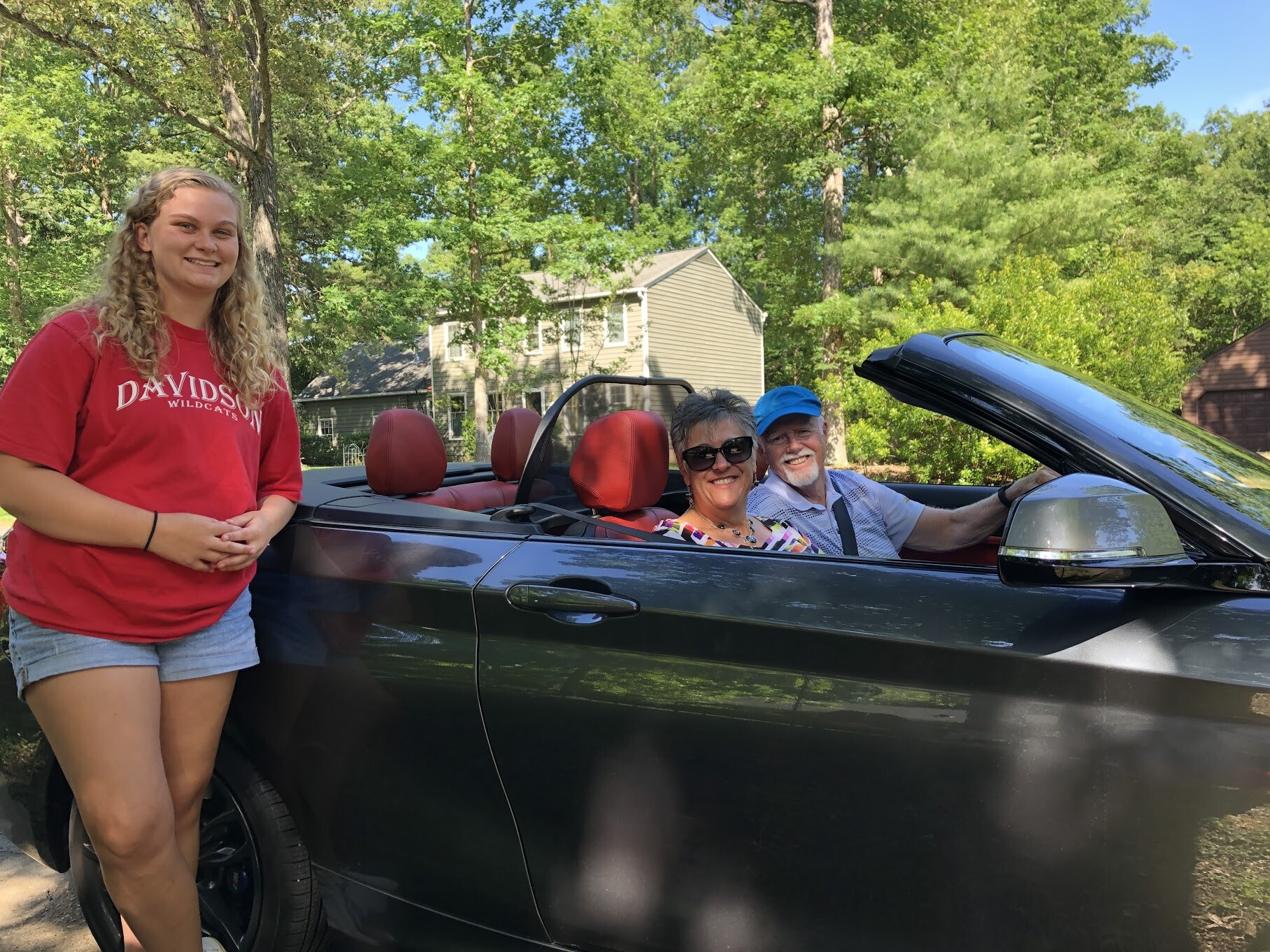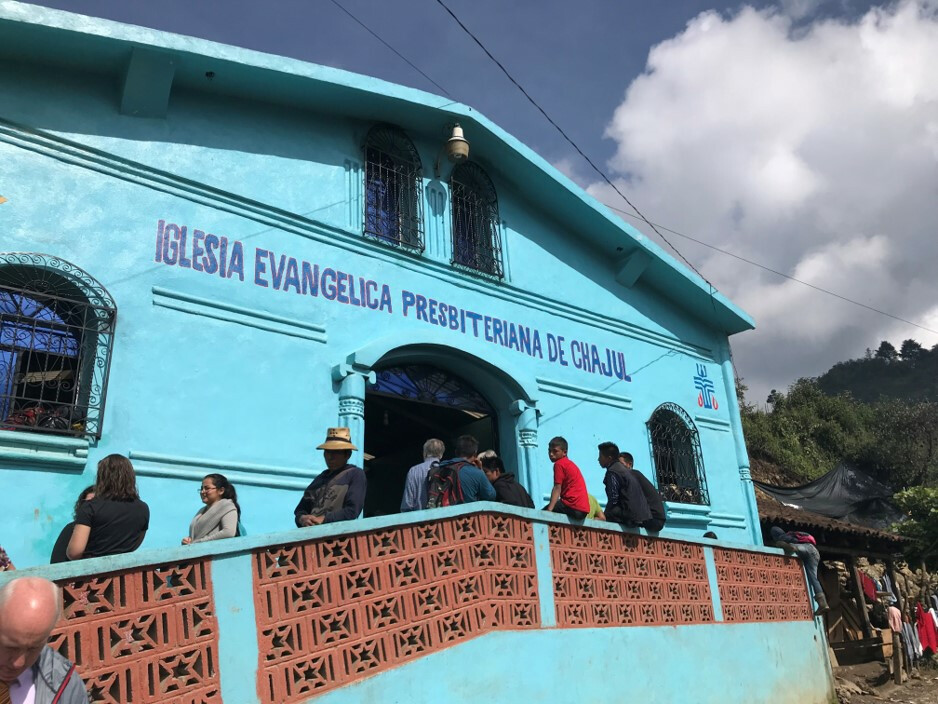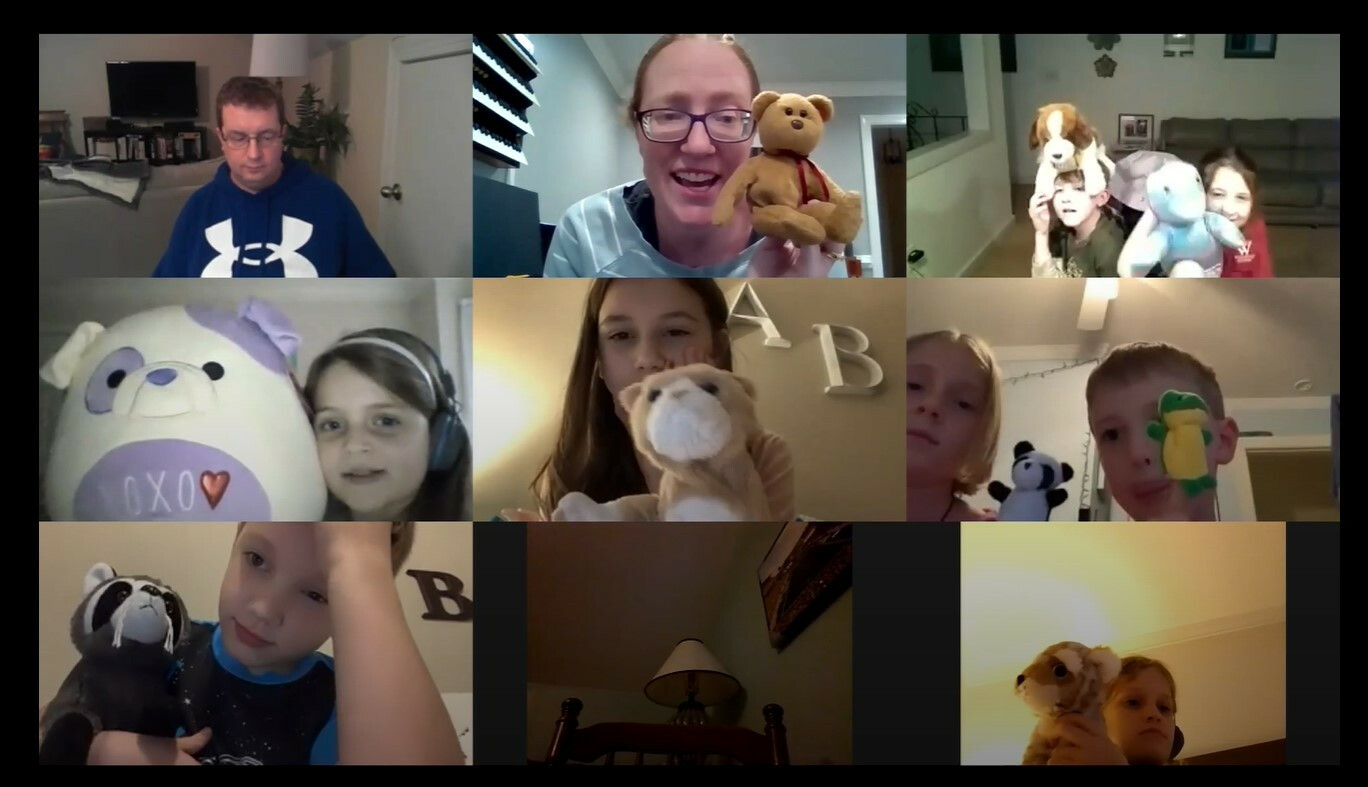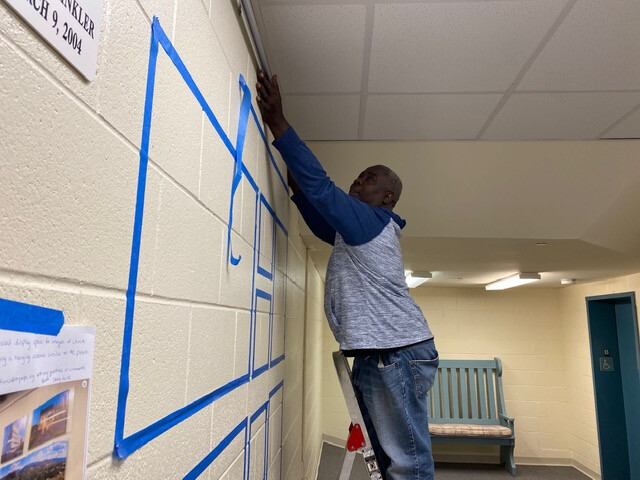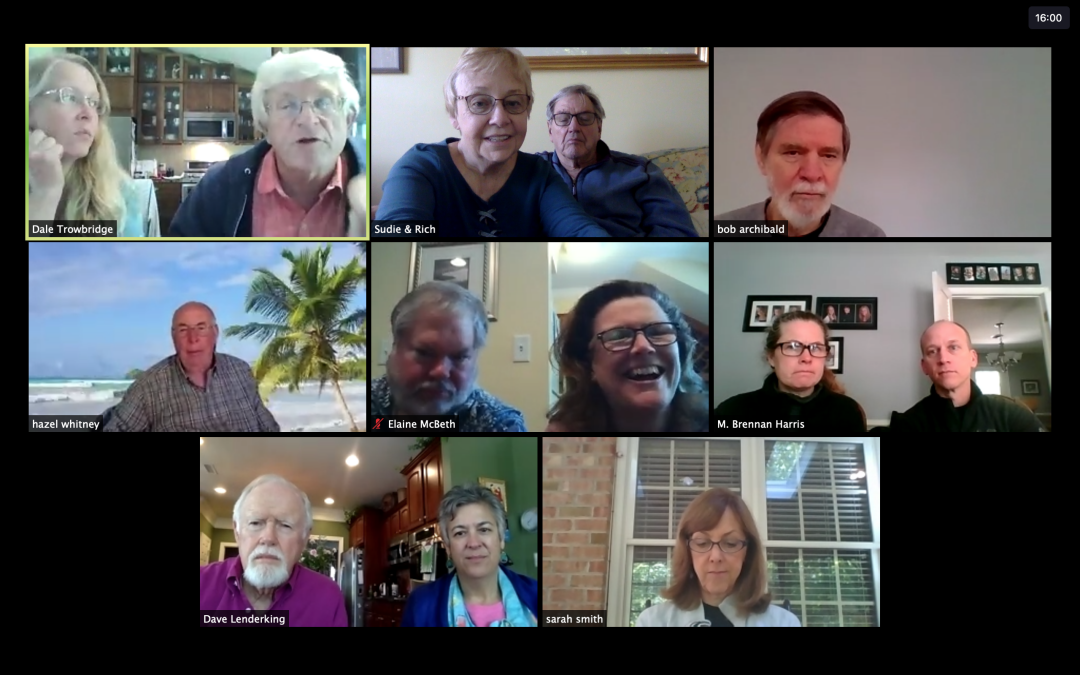
What is the Thoughtful Christian Class?
A conversation with current class members.
Thoughtful Christian concentrates mainly on current events and world problems, but also studies short books and publications of a religious nature. It’s not a Bible study class; there is no lecturer or study guide, and leadership is rotated. Members are asked for ideas of topics or books to study, which are chosen by consensus. Sometimes the class draws on PCUSA, PEVA, or DEM (Director of Education Ministries) materials for resources. Some items can be covered in one lesson, while others last several months. This format keeps the class interesting and keeps people coming back. The group started in 2006 and currently has about 15-20 members. New members are always welcome!
![]() How did you begin attending this class and why do you stay?
How did you begin attending this class and why do you stay?
– I stay with the class because I like the format and because of the camaraderie that has developed among participants. Some studies, such as immigration, have resulted in church-wide involvement and participation in the refugee program.
![]() – We like this class partly because it is a discussion-based class around a theme.
– We like this class partly because it is a discussion-based class around a theme. ![]()
– I began attending when the class was formed, and stay because it offers thoughtfulness, stimulation, and insight outside of a strictly Bible-based format. ![]()
– About 14 years ago, Pastor Karen Stanley asked several couples to consider starting a new class for parents with young children in Sunday School. In part, the idea was to attend adult Sunday School at the same time children were in Sunday School.
![]() What are the goals of the class?
What are the goals of the class?
– To provide an opportunity for study, discussion, fellowship, and support. ![]()
– Provide a deeper dive into how our faith informs our everyday lives and vice versa. ![]()
– To form a community of seekers who meet to explore faith in relation to different topics in a safe space where all are respected and all opinions are considered.![]()
– Respectful discussion of living as a Christian in the context of current events rather than historical Bible study.
![]() How does this class help you build relationships with others?
How does this class help you build relationships with others?
– In addition to our studies, we share our struggles and joys with one another, which brings us closer together as a class. ![]()
– Creating safe space for participants to express honest views and doubts.. ![]()
– Gain great respect & friendship with the others.
![]() – We have a sharing time at the beginning of the class and end with prayer requests which members explain. This helps us to become acquainted with them and their family and concerns.
– We have a sharing time at the beginning of the class and end with prayer requests which members explain. This helps us to become acquainted with them and their family and concerns.
![]() How is this class helping you deepen your relationship with God?
How is this class helping you deepen your relationship with God?
– I enjoy being with people who are really examining their faith in light of their lived experiences. By hearing and respecting different perspectives, this deepens my own relationship with God. ![]()
– Spending time in a group of other Christians is always strengthening. Their insights give me things to think about, and their suggestions of materials, articles, and books give me other places to expand my knowledge of God and his world.
![]() What is your biggest “aha” moment during this study on racism?
What is your biggest “aha” moment during this study on racism?
– A quote that was shared early on in our study has stuck with me. “When you are accustomed to privilege, equality feels like oppression.” ![]()
– Not just one moment, they keep coming... ![]()
– I have been exploring aspects of systemic racism and white privilege as a faculty member at W&M; however, in this class I have begun to have a better understanding of how race influenced the theology and the development of our denomination in the United States. ![]()
– Although I knew from childhood that I had an advantage over people of color when it came to some things, I was not conscious of the extent of systemic racism. I had never focused on the experience of Black people and how racism plays out for them every day.
![]() – Learning how little I actually knew and how poorly I was educated on this topic.
– Learning how little I actually knew and how poorly I was educated on this topic.
![]() How did the class decide to study racism? Did this topic interest you?
How did the class decide to study racism? Did this topic interest you?
– Interest in this topic was sparked by the death of George Floyd and the activities of the Black Lives Matter movement. Our denomination has produced resources and study guides. We would like to encourage increased interest in our congregation, perhaps by having leadership develop a task force. ![]()
– Current events surrounding BLM inspired us to take a more introspective look at ourselves & racism. The topic is more than a “topic”. ![]()
– We felt called to explore our role and the role of our faith in perpetuating these problems in the U.S. and in our own church. ![]()
Some members of the class were ahead of the rest of us in recognizing racism. They had done more study, attended lectures and seen presentations. They led us to look at the topic. After we’d looked, most of us were interested in figuring out how to be better Christians to our brothers and sisters.
![]() What outcome do you hope to achieve?
What outcome do you hope to achieve?
– Greater understanding and personal awareness. ![]()
– Awareness and elimination of racial injustice. ![]()
– I hope to be sensitive not only to times of racism but how I can help to combat them. I would hope that educating ourselves would also lead to education of others in the church. ![]()
– I hope to continue to educate myself about racism and the part I play in that (intentional or not) and learn how to affect change.
![]() – Better understanding on my part; helping to educate other members of the class; having WPC become more active on this topic and work toward building a better community.
– Better understanding on my part; helping to educate other members of the class; having WPC become more active on this topic and work toward building a better community.
![]() How do you define racial justice and racism?
How do you define racial justice and racism?
– I enjoy being with people who are really examining their faith in light of their lived experiences. By hearing and respecting different perspectives, this deepens my own relationship with God. ![]()
– Spending time in a group of other Christians is always strengthening. Their insights give me things to think about, and their suggestions of materials, articles, and books give me other places to expand my knowledge of God and his world.
![]() What have you learned about white privilege?
What have you learned about white privilege?
– I failed to realize how much I have. ![]()
– The color of my skin allows me to move through my culture and my world differently and in a way that generally advantages me in terms of power and wealth compared to people of color. ![]()
– It clearly exists, but like the wind at your back, I’m not always aware how I benefit.
![]() What materials are you using?
What materials are you using?
– Materials provided by the PCUSA and PEVA, and the PCUSA and WPC websites. ![]()
– Books, articles, videos, movies, and podcasts on racial justice.
![]() How do you want to share what you learn with the congregation and others?
How do you want to share what you learn with the congregation and others?
– Through education and other programming in our congregation – classes, seminars, sermons, community events, etc.
– Encourage session to have this as an on-going principle of WPC.
![]() What have you learned that surprised you?
What have you learned that surprised you?
– That in many ways, the core attitudes have not changed.![]()
– Just how embedded systemic racism is in the church and how much mainline Christianity was developed and manipulated to support structural racism in American society. I am surprised how often this story repeats itself from the gentiles, the Crusades, Nazi Germany, to racism in America. ![]()
– How little very intelligent people understand about racism. I’m happy that so many have already addressed this issue with materials, videos, Bible references, etc., already available.
![]() How does the class handle different viewpoints?
How does the class handle different viewpoints?
– Open and honest discussion based on fact and rooted in faith. ![]()
– Discussion and reflection. ![]()
– Respectful listening. Being open to other viewpoints.
Outside the Classroom...
Class members travel together and celebrate life's important moments.
Rich Watkins and Bob Archibald
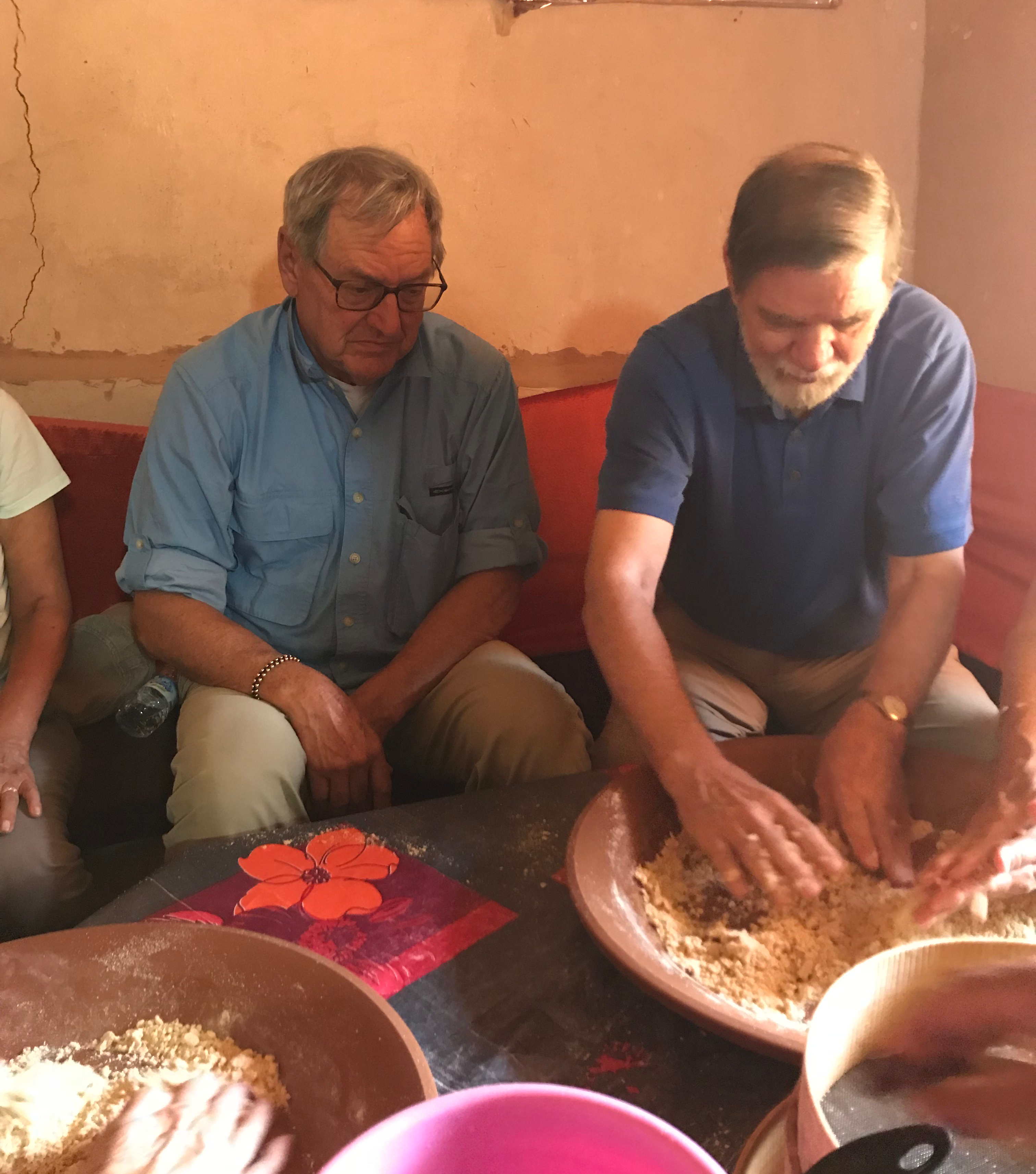
Nancy Archibald and Sudie Watkins
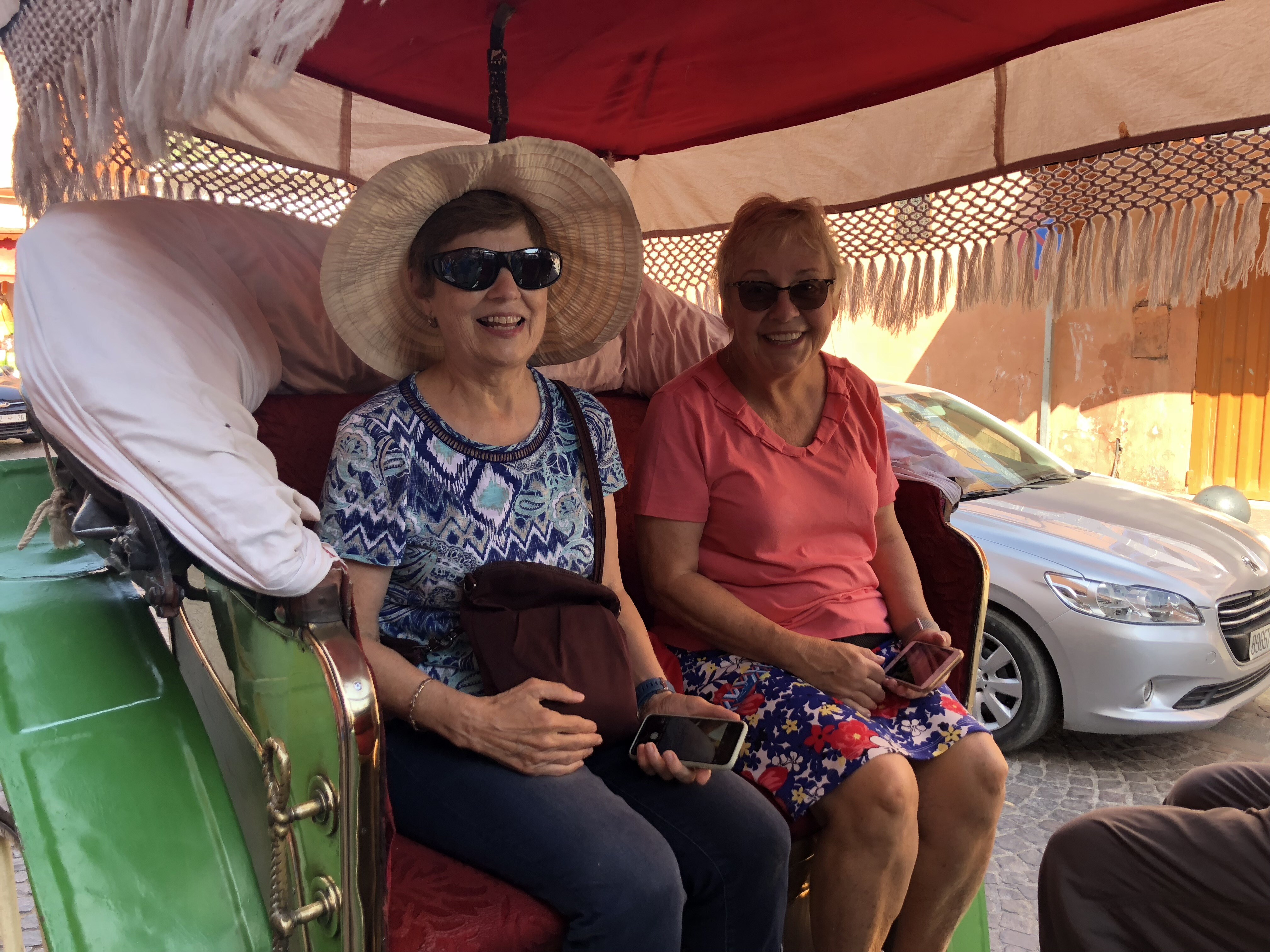
A drive-by graduation celebration.
